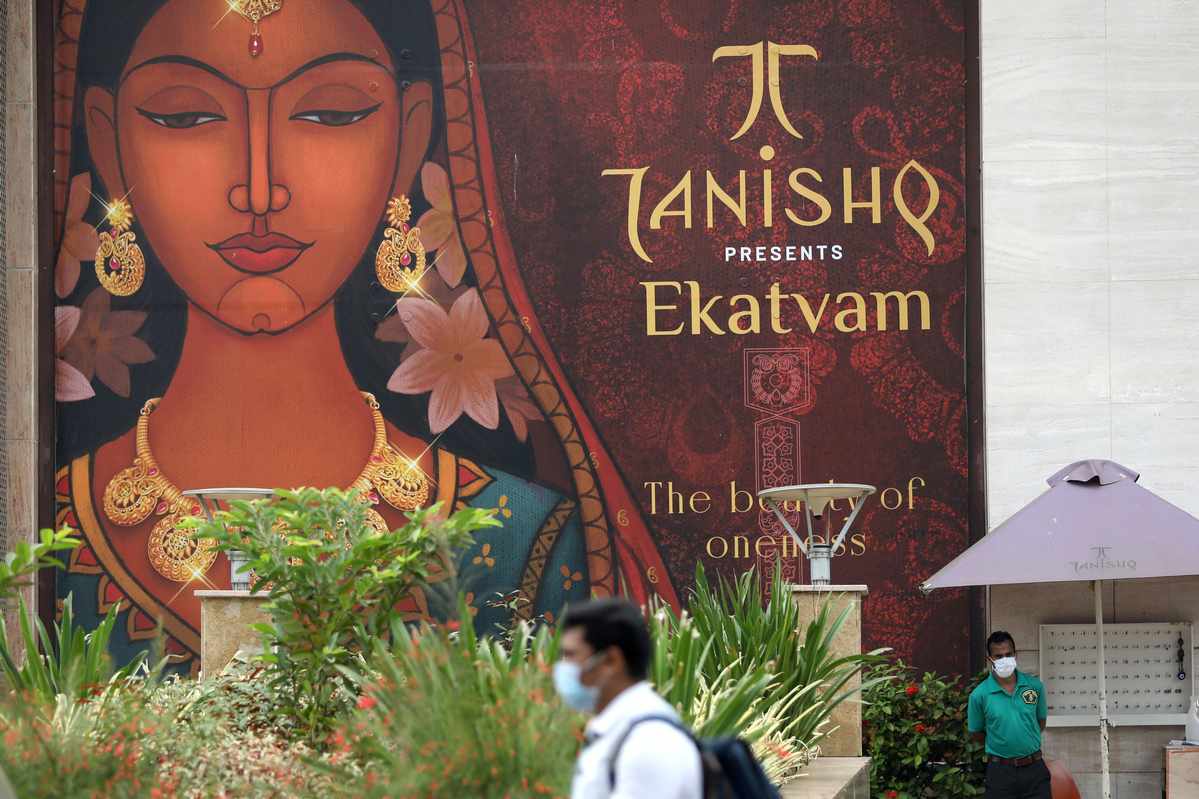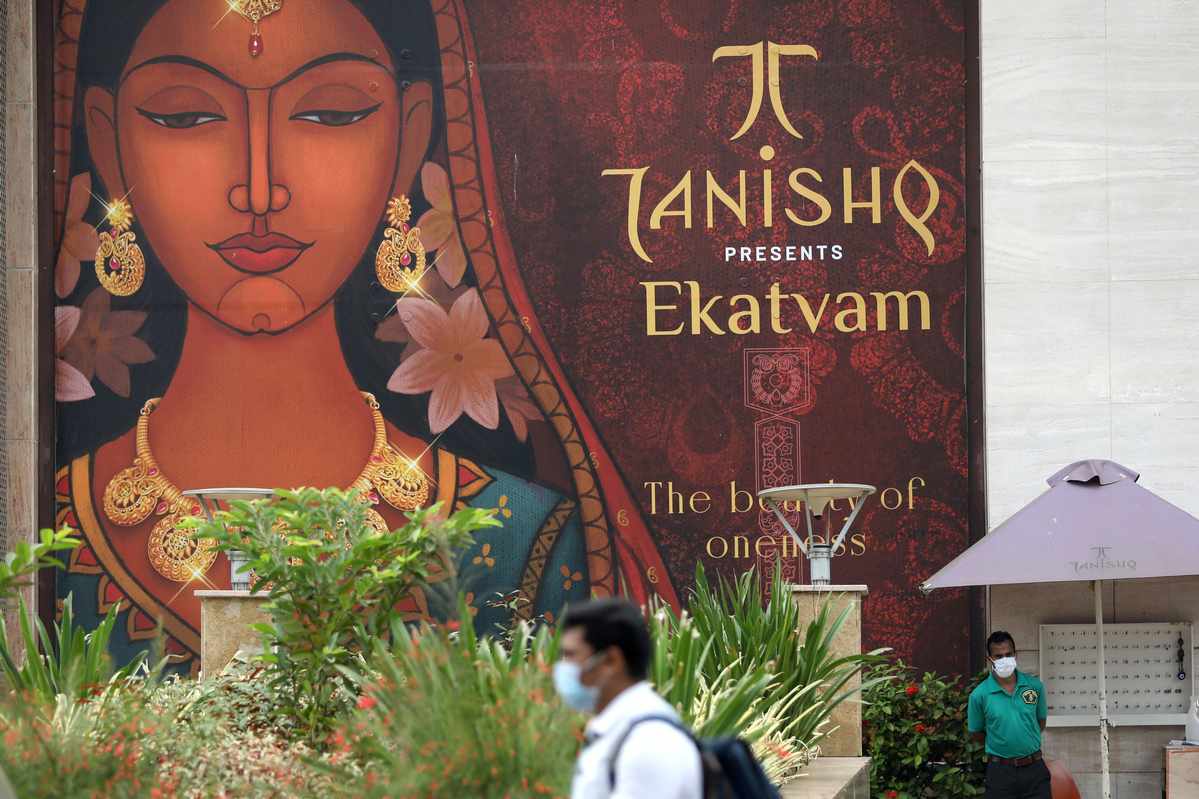Against the Tide // Tanishq Ad row: India needs a brand like Nike that’ll ‘Just Do It’
Sun 18 Oct 2020
The controversy over an advertisement by Indian jewellery brand Tanishq shows us how broken we are.
Tanishq put out an advertisement that promotes religious, cultural harmony and all hell broke loose in the troll republic. How dare Tanishq show anything that promotes love, mutual respect among communities? Boycott calls on twitter followed. Tanishq was branded “anti-Hindu”, promoter of ‘love jihad’, an imaginary bogey that the RSS and the BJP have raised for long.

But all this was only expected. It has happened before. Surf Excel faced the wrath of the hate machine over an ad with the similar message. Snapdeal was hauled over coals by the rightwing trolls over its association with actor Aamir Khan, after he dared to speak about rising intolerance in India. The most shameful bit in the entire Tanishq episode is the caving in of the company. That it could not stand up for the ideal of “oneness” it set out to promote, is a bad signal. It said “Ta Ta” to the legacy of one of India’s most respected and known corporate houses.

That even talk of amity, harmony and love can hurt feelings of a section, and a big corporate will be so spineless to surrender to those “hurt” sentiments of the bigot brigade is a reflection on New India.
Few corporates have shown balls to take on the bravado of the bigots. Zomato took the hate onslaught head on over the targeting of a Muslim delivery person. Good old Bajaj and Parle G have called out the hate on TV news and have said that they will not advertise with news channels that promote division and bigotry.
But mostly, the high and mighty corporates have remained craven. Most have chosen profit and surrender over what is morally right.
Now, contrast the moral bankruptcy of the Indian corporate with some global brands and how they respond to moral, social, political and ethical crises in their countries.
At the height of the anti-racism protests in the US, Nike put out a courageous ad against racism.
The message on the NIKE video reads: ‘for once, don’t do it. don’t pretend there’s not a problem in america. don’t turn your back on racism. don’t accept innocent lives being taken from us. don’t make any more excuses. don’t think this doesn’t affect you. don’t sit back and be silent. don’t think you can’t be part of the change. let’s all be part of the change.’ (kept in lower case as in the original ad)
Nike decided to be on the right side of history with its powerful ‘For Once, Don’t Do It’ campaign. Surely the ad angered Trump supporters and white supremacists in the US, but that didn’t deter Nike from taking a moral stand against racism.
And this wasn’t the first time that Nike just did it. In 2018, it put football star Colin Kaepernick in an ad against social injustice. Kaepernick began protesting social injustice by kneeling during the national anthem. The act inspired many more such protests. Nike took a lot of heat for the campaign. Some people on social media posted images and videos of people burning Nike shoes and cutting Nike logos out of socks and other clothing. Even Trump called the ad “bad message”. But again, Nike stood ground.

Another big corporation, Procter & Gamble, released an ad, “The Choice,” that asked white people to use their position of power in America to actively combat racism. It surely riled up the bigots on the White side, but should that be the reason to not confront the dark side of the society?
Closer home, Coca-Cola tried to bridge the gap between people of India and Pakistan with its Small World Vending Machines. Equipped with webcams, such machines were placed in malls in Delhi and Lahore to help people connect and make friends.
Similarly Google put out an emotional ad on connecting people with the India-Pakistan theme where two childhood friends connected after decades, with the help of the search engine.
An old ThumsUp ad featuring Imran Khan and Sunil Gavaskar has resurfaced on the internet amid the Tanishq controversy. It reminds one of the time when our patriotism and religious feelings were firmer than cola fizz.

Of late, the hate brigade in India has discovered the emotional and social impact ad films by popular brands can have on societies. They have decided to target anything that promotes amity, harmony, cultural and religious tolerance. All these concepts go against the agenda of the promoters of hate and division. So you see vile targeting of a Surf Excel ad or a Red Label Tea leaf ad that talk about inter-faith harmony. Surf Excel and Red Label, thankfully, didn’t succumb to the boycott hashtags.
But the caving in of Tanishq will set a bad precedent. The majority of Indian corporates who are kosher overlooking the hate wave running through the country as long as their profits keep coming, may go into their shells further. Tanishq’s surrender to the hate brigade has shown that taking a stand will entail a cost. And most corporates just won’t be ready to pay that cost. The creative expression that can be used to bridge the divide will be curtailed as brands will play safe or God forbid, like Bollywood, play to the ‘popular narrative’ gallery.

It is an important juncture for the corporates and advertisers. They can either push back at the barrage of hate with all their money and might. Or they can just keep crawling their way to the bank. Time to put people and principles before profit.
Disclaimer: All views and opinions expressed in The Brew View – our opinion section – are those of the authors and do not necessarily reflect the official policy or position of TheBrew.ae, the company, or any of its members.

 Apr 23 2024
Apr 23 2024













